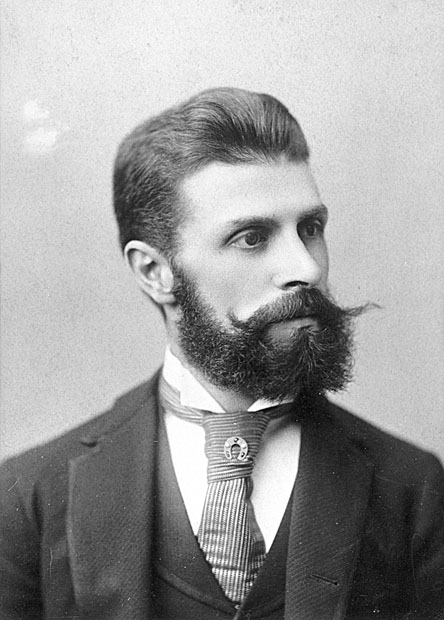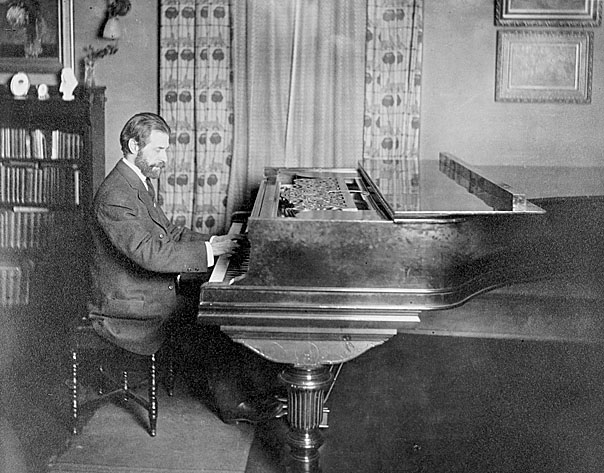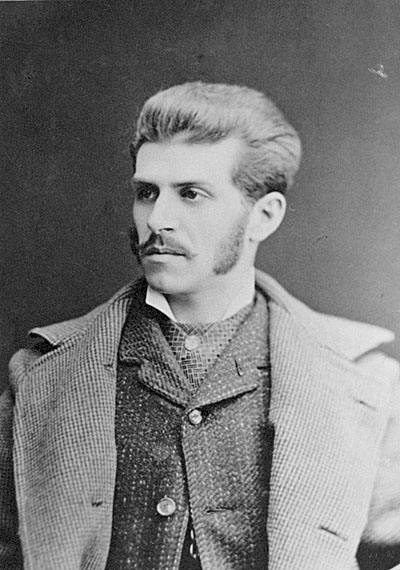In 1880 the Italian-born pianist Alfredo Barili became the first professional musician to move to Atlanta, where he played a major role in establishing the foundation upon which the city’s vibrant classical music culture arose. The Atlanta Journal-Constitution credits Barili “with bringing professional-level education and performance to Atlanta.” His school of music was one of the first in the South to offer professional music training, and many of his students went on to successful careers in music.

Courtesy of Georgia Archives.
Barili was born in Florence, Italy, on August 2, 1854. Members of his family were actively involved in premiering a number of operas in Italy and the United States; Barili’s aunt, Adelina Patti, was perhaps the most celebrated soprano of the century. Four months after Barili’s birth, the family moved to New York, where his father, Ettore, sang the American premier of Rigoletto the next year. The ten-year-old Barili made his debut as a pianist on April 7, 1865, in New York’s Irving Hall. His family soon moved to Philadelphia, Pennsylvania, where he studied the piano with Carl Wolfsohn before embarking for the Cologne Conservatory in 1872. In Cologne, Germany, he worked with the well-known German conductor and composer Ferdinand Hiller. After almost five years of study, Barili returned briefly to Philadelphia before moving to Atlanta in 1880, probably for health reasons.
Barili was the first professional concert pianist to make his home in Atlanta. He introduced the city to the Ludwig Beethoven sonatas, and his programs and those he supervised consistently included major works by Robert Schumann, Franz Liszt, Frederic Chopin, and others.

Courtesy of Georgia Archives.
He also played a central role in encouraging the performance of major choral and orchestral works. In 1883 he organized the first Atlanta Music Festival, which included a chorus of 300 accompanied by Carl Sentz’s orchestra from Philadelphia. During that one weekend Barili introduced symphonies by Franz Schubert (no. 8), Franz Haydn, and Beethoven, as well as a number of Felix Mendelssohn and Giuseppe Verdi overtures.
Later that same year, the noted conductor Theodore Thomas and his orchestra joined with Barili’s ninety-voice Musical Union. In a spectacular gesture of respect, Thomas handed Barili the baton and stepped aside as the young musician conducted the combined choral and orchestral numbers.
In the fall of 1899 Barili opened his own school of music, which offered instruction in piano, voice, organ, Italian language, music history, and music theory; the school had a small instrumental ensemble as well. Though the enrollment probably never exceeded fifty, Barili’s school was among the first in the South to offer professional musical instruction. Into the twenty-first century former students continue to speak highly of the training they received there.
Atlanta’s thriving musical culture would be unthinkable without the professional groundwork Barili laid more than a hundred years ago. As a teacher he inspired two generations of students. His soft-spoken and gracious but firm manner won him many friends, including some of the country’s best-known musicians, among them Edward MacDowell and Mrs. H.H.A. Beach. By the time of Barili’s death in November 1935, he was one of the most respected teachers and musicians in the South. He is buried in the family plot at West View Cemetery in Atlanta.

Courtesy of Georgia Archives.







